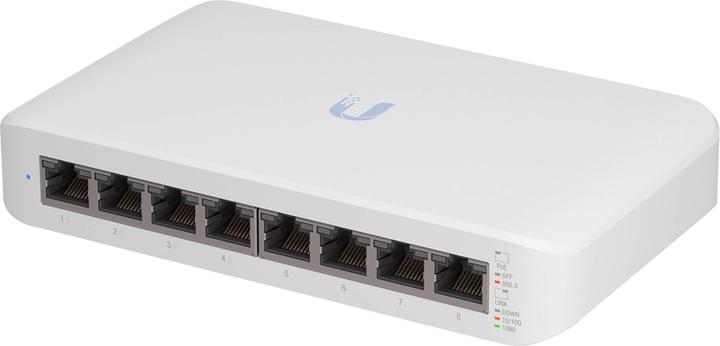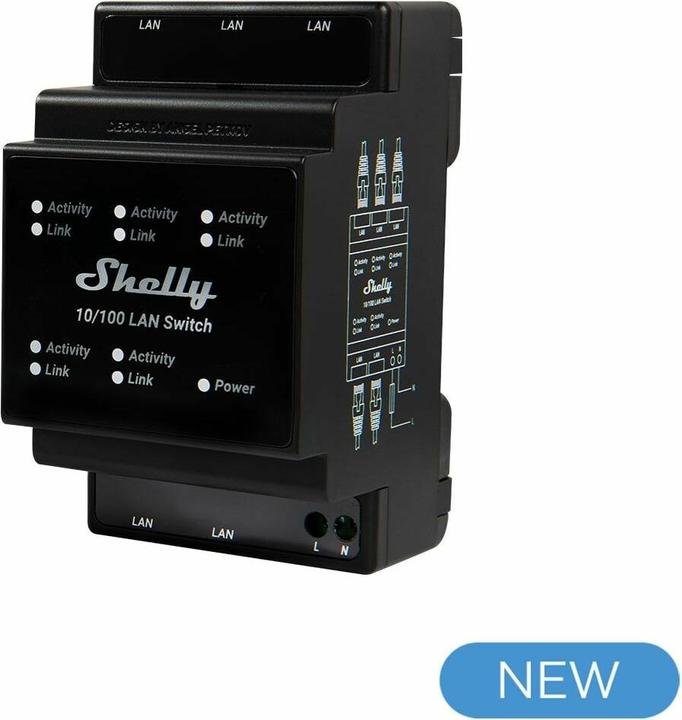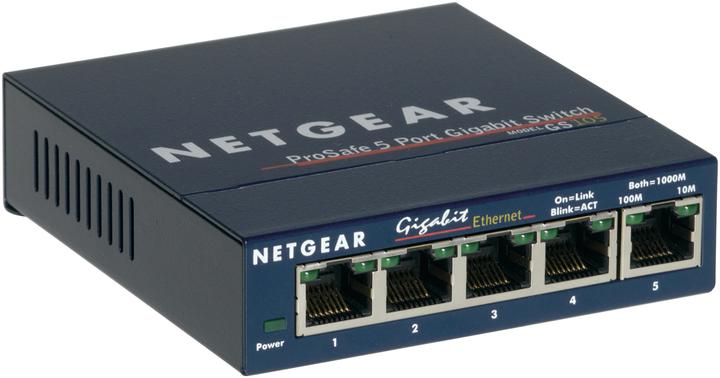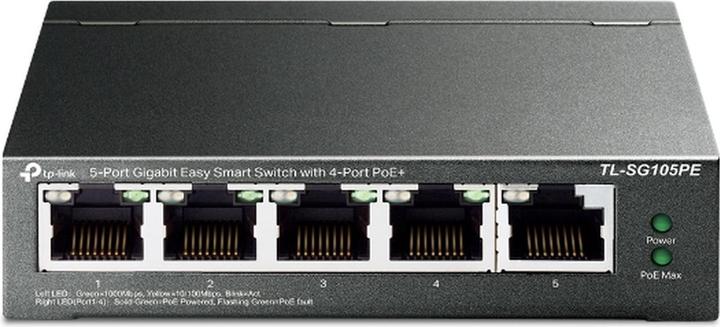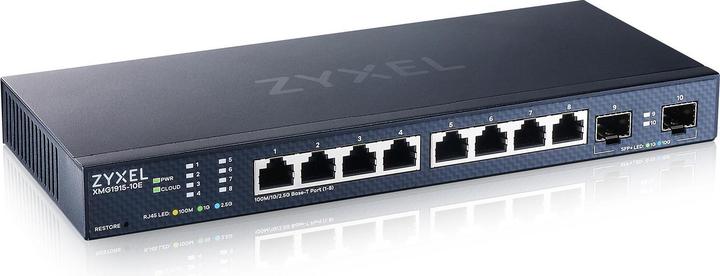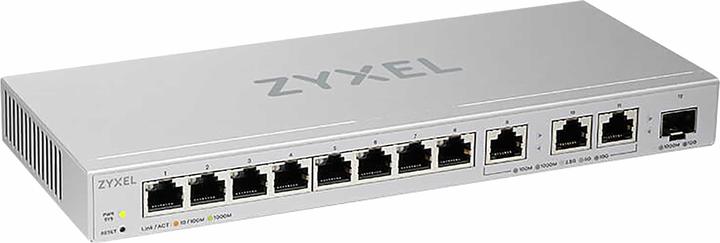
Too Many Network Switches? Find the Right One
Discover the essential criteria for selecting the perfect network switch for your needs.
Last updated 3 weeks ago. Automatically generated content.


Select options and limit the number of products
Switchtype refers to the design and functionality of network switches, influencing their installation, usage, and performance. Choosing the right switch type is crucial for ensuring optimal network setup, scalability, and efficiency based on specific needs and environments.
Popular options (you can select more than one)
Rack Switch
Typical price
300.– to 3100.–Designed for installation in server racks, providing centralized management and high port density.
Ideal for data centers and enterprise environments, offering scalability and organized network infrastructure.
Bestseller
PoE Switch
Typical price
120.– to 840.–Supports Power over Ethernet (PoE), delivering power and data through a single cable.
Perfect for powering devices like IP cameras and phones, simplifying installation and reducing cabling costs.
Bestseller
Desktop switch
Typical price
38.– to 180.–Compact design for placement on desks or small spaces, offering basic networking features.
Suitable for small offices or home networks, providing easy setup and connectivity without extensive wiring.
Bestseller
DIN Rail Switch
Typical price
160.– to 800.–Mounts on DIN rails in industrial environments, designed for rugged conditions.
Best suited for factories and harsh environments, offering reliable network connectivity and resilience against extreme conditions.
Bestseller
Max. port speed in network switches refers to the highest speed at which data can be transmitted through the switch's ports, impacting overall network performance. Selecting the appropriate port speed is crucial for ensuring efficient data transfer rates, which can improve productivity and reduce latency in network operations.
Popular options
100 - 1000 Mbit/s
Typical price
100.– to 800.–Supports basic networking needs such as small office or home use with moderate data transfer requirements.
Ideal for users with limited bandwidth needs, providing sufficient speed for everyday internet activities like browsing and streaming.
Bestseller
1001 - 10000 Mbit/s
Typical price
290.– to 3100.–Facilitates high-speed data transmission for demanding applications and large networks.
Recommended for businesses or environments requiring fast data processing, offering enhanced performance for tasks like large file transfers and video conferencing.
Bestseller
Management in network switches refers to the ability to configure, monitor, and control the device's performance and functionality. It is crucial for optimizing network efficiency, security, and scalability, enabling users to tailor the network to their specific needs.
Popular options (you can select more than one)
Unmanaged
Typical price
85.– to 750.–Offers plug-and-play simplicity without configuration options.
Ideal for small networks or home use, providing basic connectivity without the need for technical expertise.
Bestseller
Fully managed
Typical price
460.– to 3900.–Provides comprehensive configuration, monitoring, and control features.
Suitable for complex networks, allowing advanced customization and ensuring optimal performance and security.
Bestseller
Smart managed
Typical price
170.– to 750.–Balances simplicity and control with limited configuration options.
Great for medium-sized networks, offering essential management features without overwhelming complexity.
Bestseller
Cloud managed
Typical price
220.– to 1000.–Enables remote management via cloud-based software.
Perfect for scalable networks, facilitating easy updates and monitoring from anywhere, enhancing flexibility and efficiency.
Bestseller
Power over Ethernet (PoE) standard determines how network switches deliver electrical power along with data over Ethernet cables to connected devices. Choosing the right PoE standard is essential for ensuring compatibility with your devices, optimizing power efficiency, and reducing cable clutter.
Popular options (you can select more than one)
802.3at (PoE+)
Typical price
160.– to 1200.–Provides up to 30 watts of power per port, suitable for devices like IP cameras and VoIP phones.
Ideal for medium-power applications, enhancing device capabilities without needing additional power sources.
Bestseller
802.3af (PoE)
Typical price
110.– to 800.–Supplies up to 15.4 watts of power per port, supporting basic network devices such as standard VoIP phones.
Efficient for low-power devices, reducing the need for power outlets and simplifying installation.
Bestseller
802.3bt (PoE++)
Typical price
200.– to 2300.–Delivers up to 90 watts of power per port, accommodating high-power devices such as video conferencing systems and large displays.
Optimal for demanding applications, ensuring robust performance and minimizing separate power requirements.
Bestseller
UPOE
Typical price
85.– to 2400.–Extends power delivery up to 60 watts per port, compatible with a wide range of devices including multi-radio access points.
Offers flexibility and enhanced power capacity, beneficial for evolving network setups and increased device power needs.
Bestseller
Choosing the right brand for network switches is crucial for ensuring reliability, performance, and compatibility with existing systems. Brands like Netgear, Ubiquiti, and TP-Link offer diverse options, with Netgear known for user-friendly setups, Ubiquiti for advanced network solutions, and TP-Link for cost-effective choices.
Popular brands (you can select more than one)
Netgear
Known for its wide range of consumer-friendly network solutions.
Offers easy installation and robust customer support, ideal for home users and small businesses.
Bestseller
Ubiquiti
Recognized for high-performance networking gear suitable for professional environments.
Ideal for businesses seeking scalable and advanced network management features.
Bestseller
TP-Link
Offers affordable network solutions with reliable performance.
Great for budget-conscious users who need dependable equipment without advanced features.
Bestseller
D-Link
Specializes in providing a balance of performance and value.
Suitable for small to medium-sized businesses needing reliable networking without overspending.
Bestseller
Zyxel
Known for comprehensive network solutions including security and cloud management.
Ideal for users seeking a complete networking package with enhanced security features.
Bestseller
